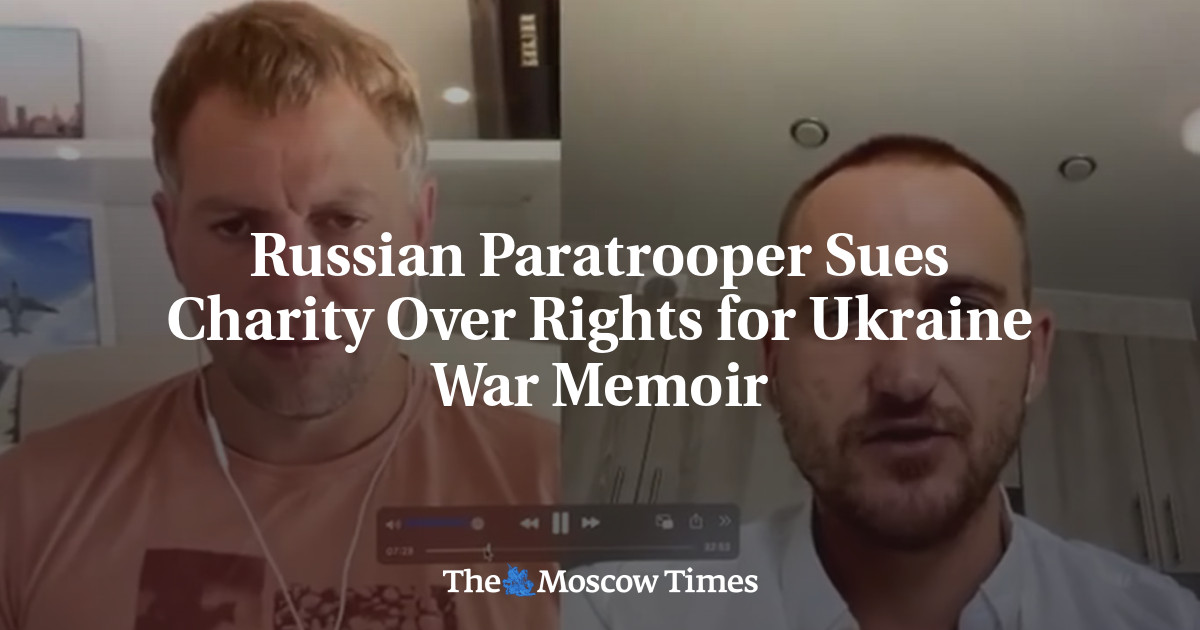
A former Russian paratrooper who took part in the Russian invasion of Ukraine before fleeing the country and writing a book about his experience has taken the prominent human rights NGO Gulagu.net, which helped him leave Russia, to court in an attempt to win back the royalties for his work.
Pavel Filatyev’s lawsuit claims that he was forced to transfer the book rights to Gulagu.net and the New Dissidents Foundation, the head of both organizations, Vladimir Osechkin, told The Moscow Times on Thursday.
According to Osechkin, Filatyev signed a copyright contract with the New Dissidents Foundation in September, assigning the rights to his book titled ZOV — the letters referring to three commonly used pro-war symbols in Russia.
The advance payments from publishing contracts totaled over 300,000 euros ($315,763) and rights have already been sold to a number of publishers around the world including in France, the U.S. and Germany.
Filatyev, 34, served in Russia’s 56th air assault regiment and took part in Russia’s invasion of Ukraine in February and March before being evacuated from the frontlines after an eye injury. He subsequently refused to redeploy, published his book on popular Russian social media site VK in early August, and then left Russia with the help of Gulagu.net and requested political asylum in France.
In an online exchange in August, Filatyev openly asked Osechkin to help him with translating and publishing the book, clearly stating that he wanted to transfer all the rights to Gulagu.net and donate profits from the book’s publication to humanitarian organizations in Ukraine.
Earlier this month, Filatyev accused Osechkin of “fraud and blackmail” and accused him of being a “scammer, extortionist and disinformer” disguised as a human rights activist in a Facebook comment.
“You took the book copyright from me … you tried to prevent its release and avoid paying taxes in France and take the money,” Filatyev added.
Osechkin told The Moscow Times that the contract had been signed in the presence of lawyers and journalists, while one of the contract’s conditions was that the money be used with Filatyev’s consent.
According to Osechkin, Filatyev even met with the representatives of the publishing house along with Osechkin at a lavish parisian restaurant.
“We really wanted to help him apologize to Ukraine … we believed in his story,” Osechkin said.
Filatyev didn’t respond to a request for comment from The Moscow Times.